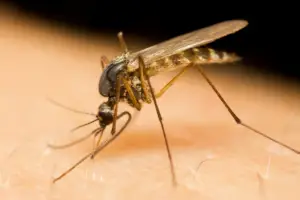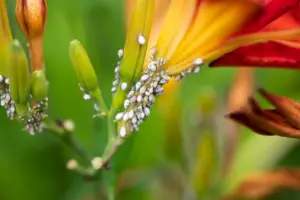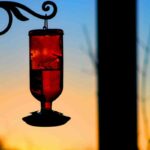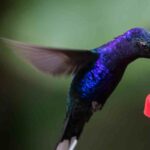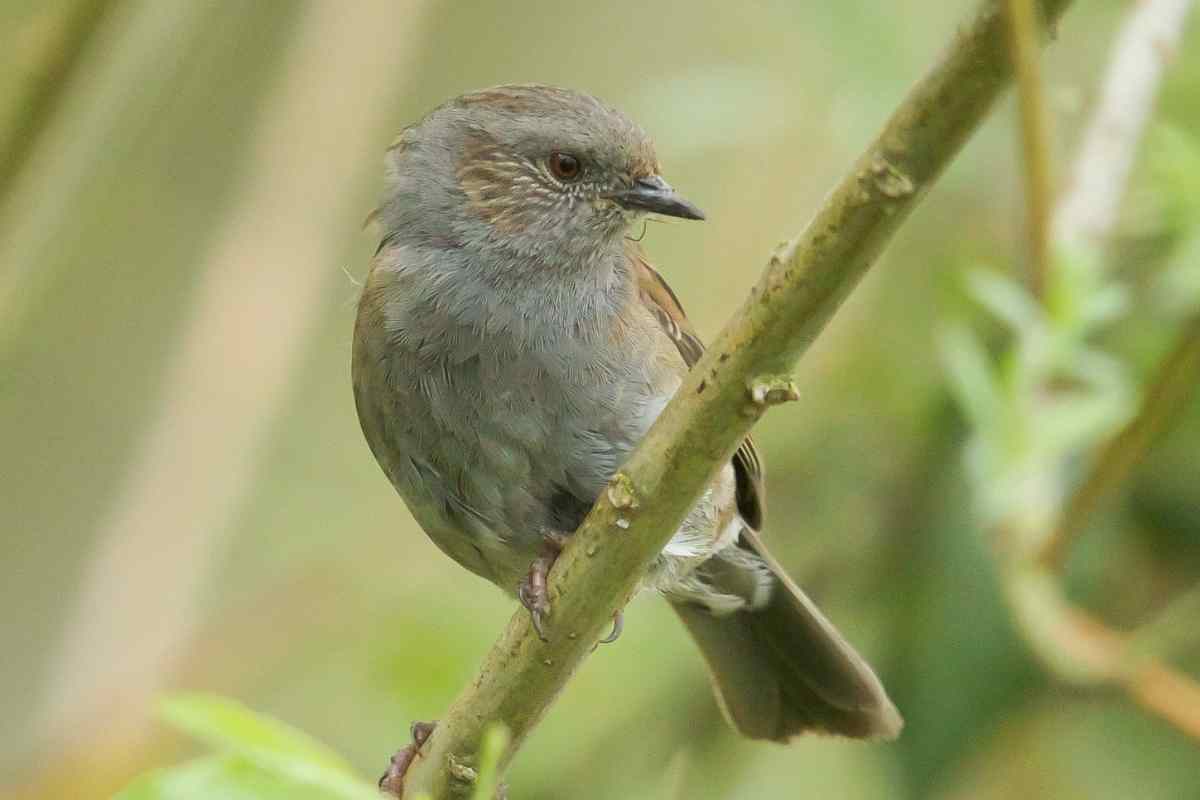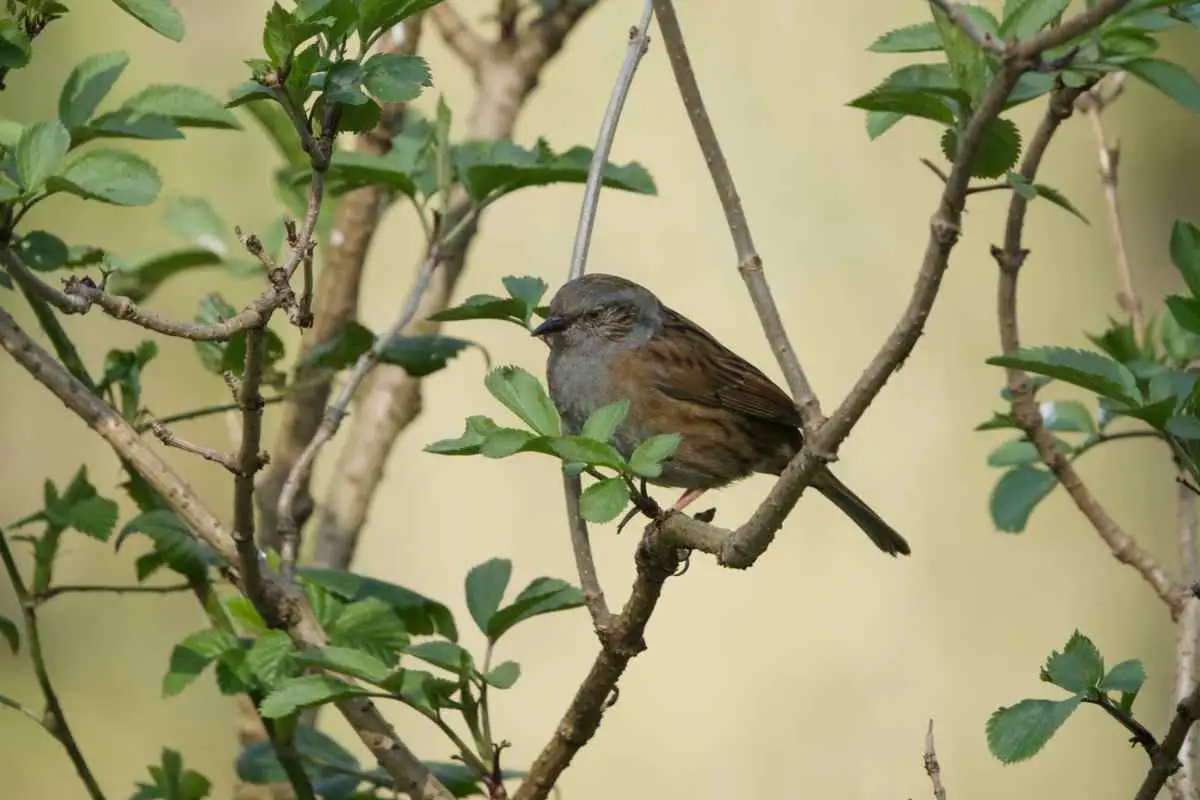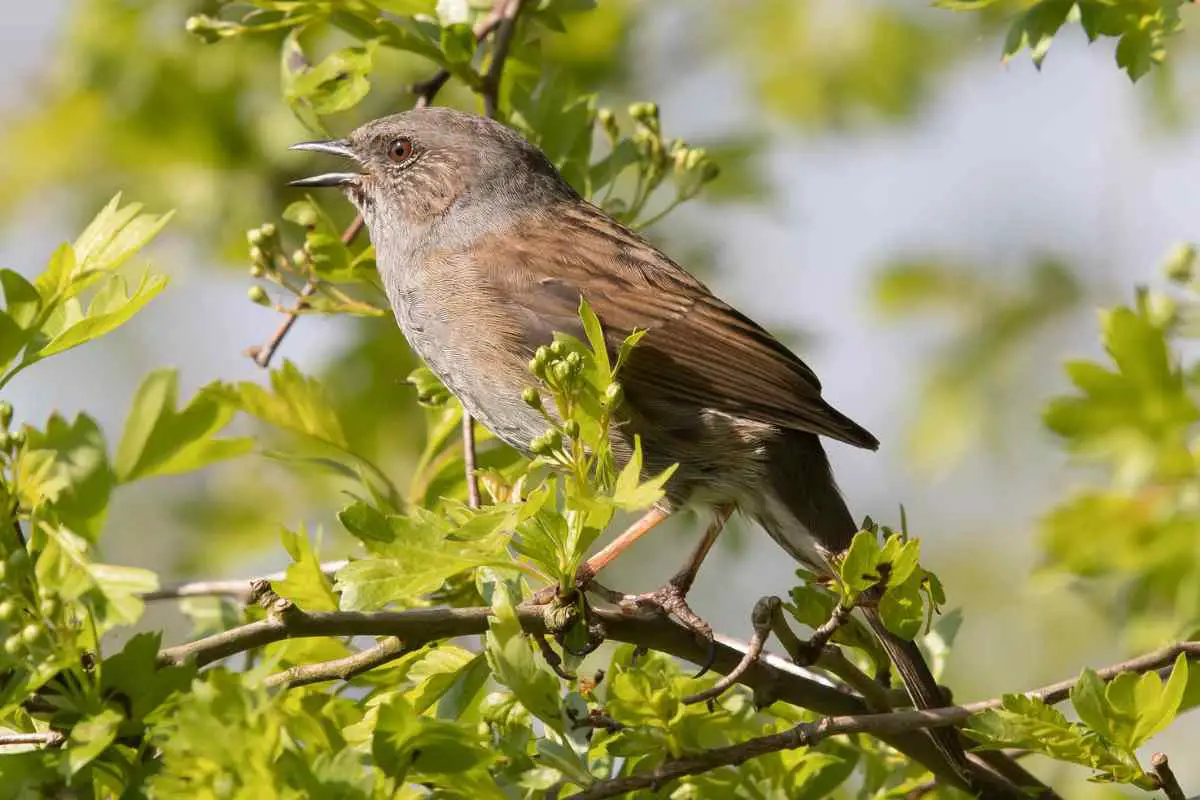Feeding hummingbirds in winter requires bringing in their food during the night, so it doesn’t freeze. You can also use a lightbulb, add more sugar to the nectar you use, or insulate the feeder to prevent freezing.
Feeding hummingbirds in the winter can help any that didn’t migrate for the season survive.
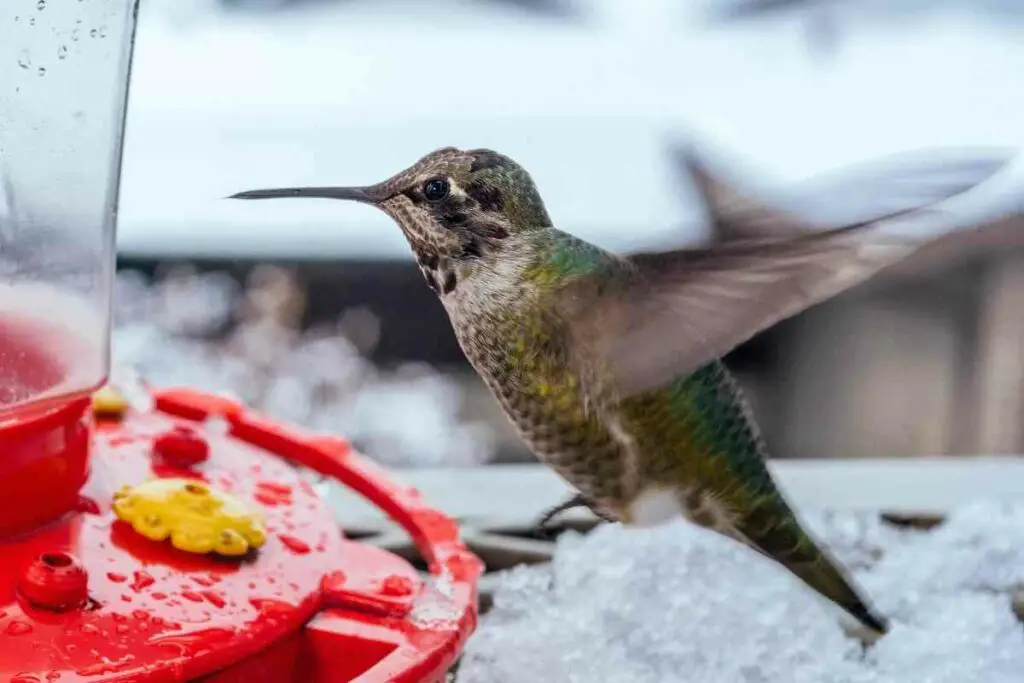
You’ll need to take several steps to ensure they have constant access to a meal.
It’s always good to have hummingbird food available year-round, even when you don’t see as many of the birds in your yard.
Table of Contents
How Can I Feed Hummingbirds in Winter?
You can still leave a hummingbird feeder out during the winter.
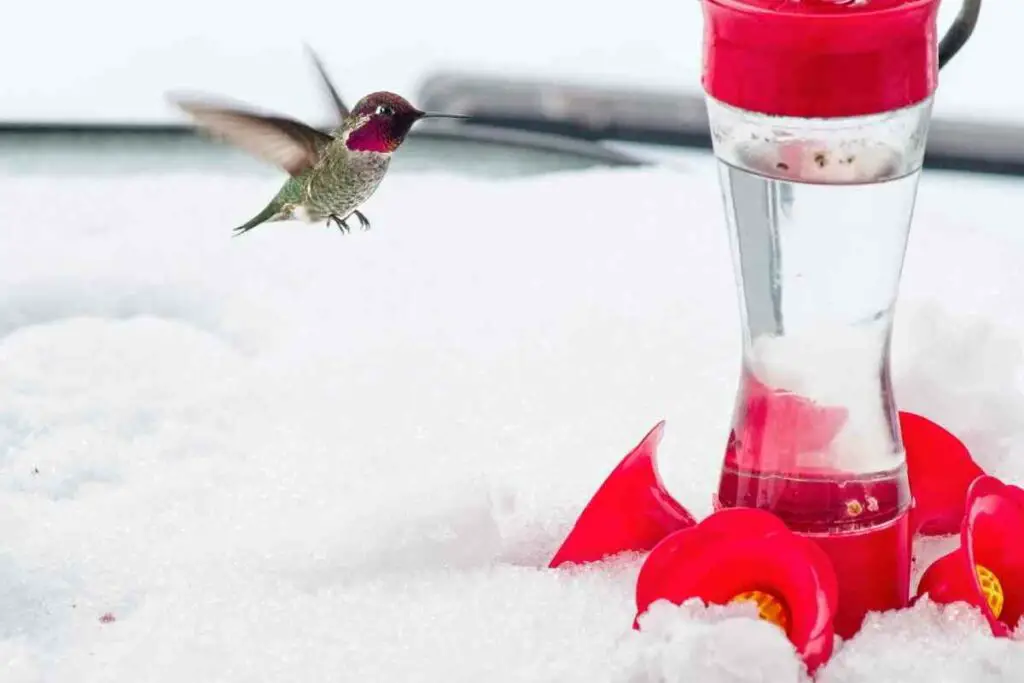
However, you’ll need to take additional measures to ensure that it doesn’t freeze:
- If it does turn to ice, bring it inside to melt at room temperature.
- Then, replace the food with more fresh nectar.
- If you have a feeder outside during the winter months, you should take it indoors at dusk and set it out first thing in the morning.
Hummingbirds eat very early, so they’ll miss it if you sleep in!
Hanging an incandescent light bulb beside the nectar feeder also gives the birds a place to rest and stay warm.
Even Better – The lightbulb should prevent the nectar inside from freezing. However, it’s usually much easier to bring the feeder inside during the night.
Add More Sugar To the Nectar
Next, you must add slightly more sugar than usual to the nectar you set out during the wintertime.
With more sugar, the freezing point of the nectar goes up. Instead of your typical recipe, you’ll want to consider adding one part sugar to three parts water.
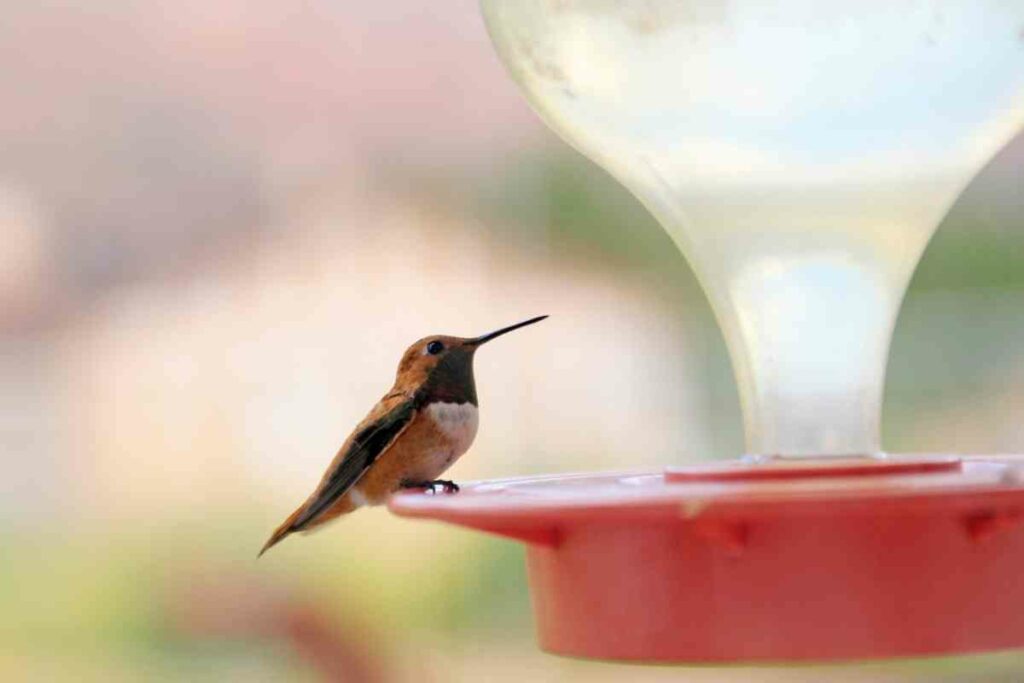
Plus, food will be much more scarce for the birds when everything is frozen over.
Adding more sugar raises the calorie content of your homemade nectar, helping the birds survive the winter.
That said, you don’t want to go overboard with how much sugar you use!
Too much sugar can harm their livers and kidneys, while too little sugar doesn’t give them enough calories to survive the winter.
You need to balance out your sugar use during the cold months because of this.
Insulate the Feeder
Keeping the feeder from freezing is essential during the winter.
Hummingbirds can’t drink frozen nectar!
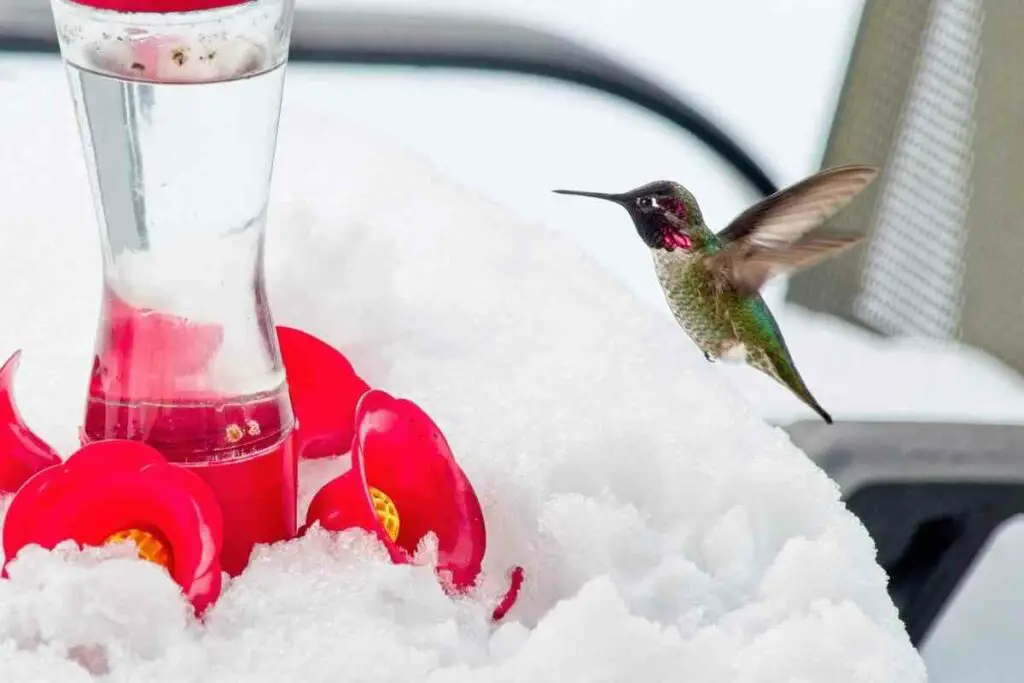
If it’s below freezing during the day, insulating the feeder will help keep the nectar in a liquid state.
Many people wrap towels or scarves around the feeder to help insulate it. You can also include a hand warmer to the fabric to help keep the feeder warm.
Another option would be to use lagging, which is an insulating tape. Wrapping it around the feeder should give you great results!
Keep the Feeder Out of the Wind
Additionally, you’ll want to place your hummingbird feeder somewhere it’s not in the direct wind.
Wind chill can be especially bitter during the winter. Even if it’s above freezing outdoors, the nectar can still harden if the wind chill is low enough.
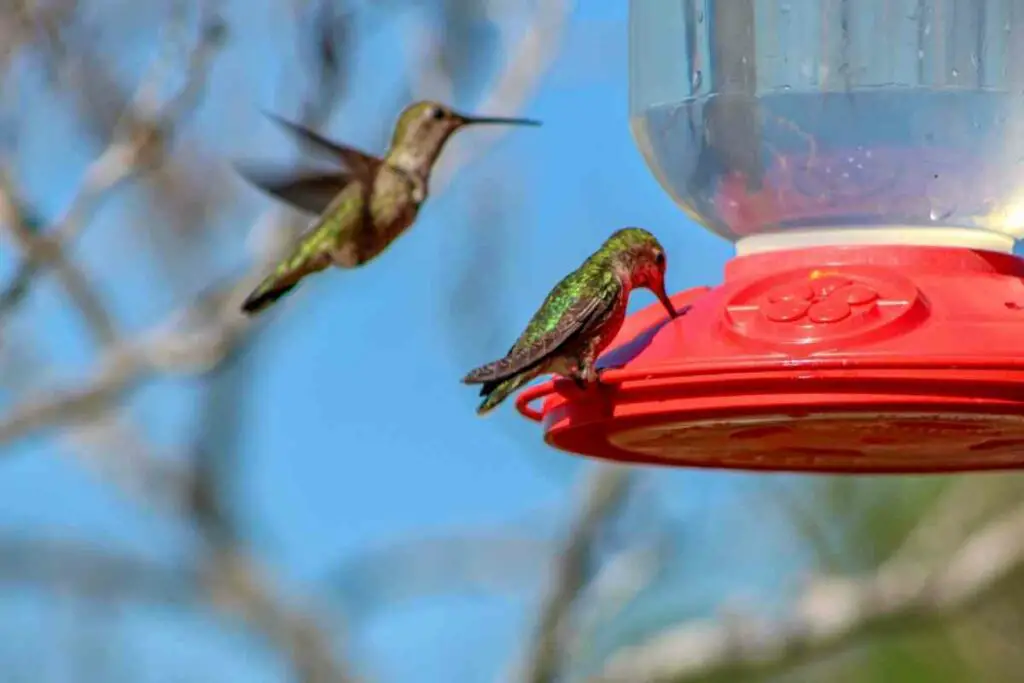
Place the nectar feeder behind an object to stop the wind from hitting it.
Many people set their feeders near their homes, tall fences, or even large trees.
You don’t want to put them too close, but just enough so that the wind doesn’t hit the feeder constantly.
Use a Heat Source
Lastly, it’s possible to add a heat source.
The warmth prevents the nectar from turning into ice while also giving the hummingbirds somewhere to warm up and relax.

Sometimes an incandescent light bulb is enough to stop the liquid from freezing.
A 12-watt bulb is strong enough to provide reliable warmth.
However, there are plenty of other heat sources you might consider using.
Works Fine – Heat lights, Christmas or string lights, and heating pads are other options. You’ll need to set up an extension cord so that these items can reach your feeder. The string lights and heating pad can go under the feeder, while you’d want to aim a heat light at it from above instead.
Overall, adding a heat source is a wonderful option!
It helps keep the hummingbirds’ food from freezing while also giving them a place to warm up during the day.
Why Don’t I See Many Hummingbirds in Winter?
Most hummingbirds do travel to warmer climates during the winter.
However, you may still see some hummingbirds lingering in your yard for a while after the first chill.
If these species should migrate, you should put away the feeder to not encourage them to stay too long.
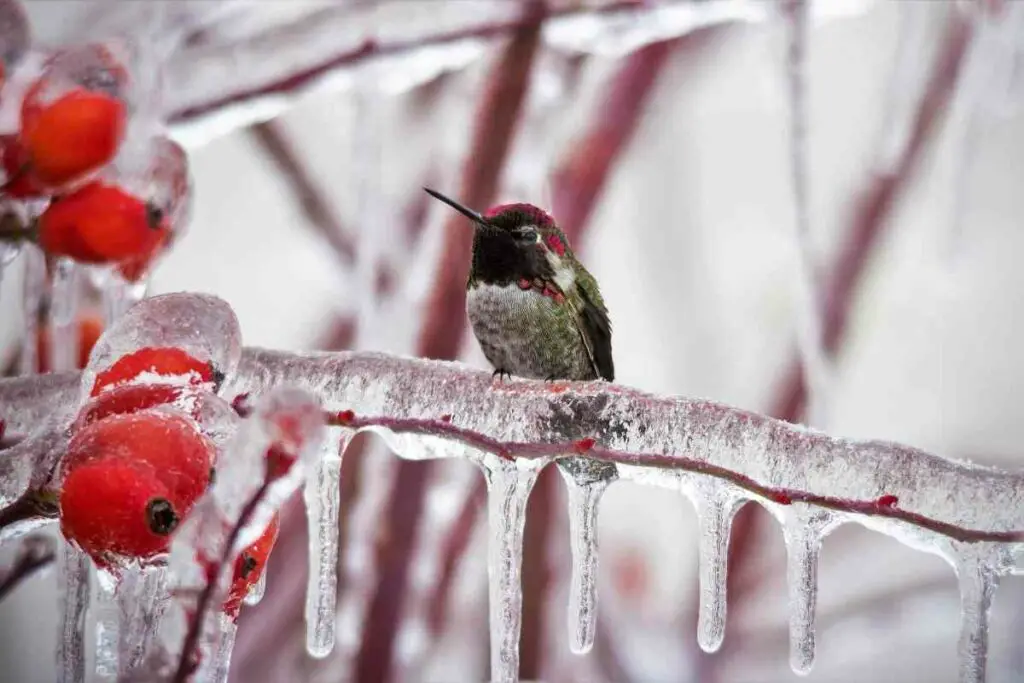
Some species don’t migrate. They enter a state to conserve their energy and experience short hibernations each night.
However, many still search for food during the day- making a nectar feeder very important!
To Summarize: Different areas may not have hummingbirds during the winter. If you’re used to seeing them but don’t have any this winter, they may have changed their migration paths. Leaving a nectar feeder out can still encourage them to come to your yard again during the springtime.
How Long Should I Feed Hummingbirds in Winter?
You have to stay committed if you start feeding hummingbirds during the winter!
During the cold months, your feeder could be the only food source for these tiny birds.
If you don’t want to feed the birds all winter long, then make sure you stop feeding them around the end of November.
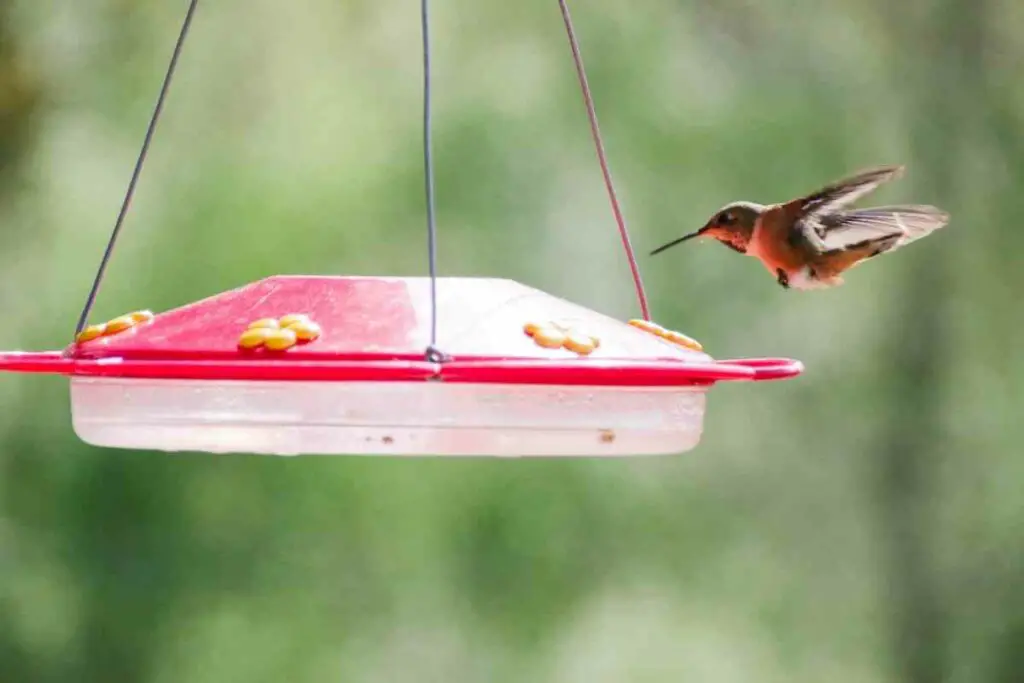
Doing so will encourage the birds to move to a warmer area. Otherwise, you’ll need to take responsibility for them.
These responsibilities include offering fresh food every morning. You should bring the nectar inside at about 6 pm, keeping it indoors until early the next day.
Then, prepare the fresh hummingbird nectar and reset the feeder outside. Not everyone wants to do this every single day.
Overall – You’ll need to feed the hummingbirds throughout the winter unless they migrate. Don’t set food out for them during late November to encourage migration. It can take some time for them to move on, but the birds will come back in the spring.
Also Helpful
- How to Tell a Dunnock from a Sparrow: Simple Tips for Birdwatchers
- Difference Between Male and Female Dunnocks?
- What Does a Dunnock Look Like?
- How to Keep Mosquitoes Away From Your Patio: Tips and Tricks
- Can Coyotes Climb Trees? Exploring Their Climbing Abilities
- How to Control White Aphids: Effective Tips for Getting Rid of Them




